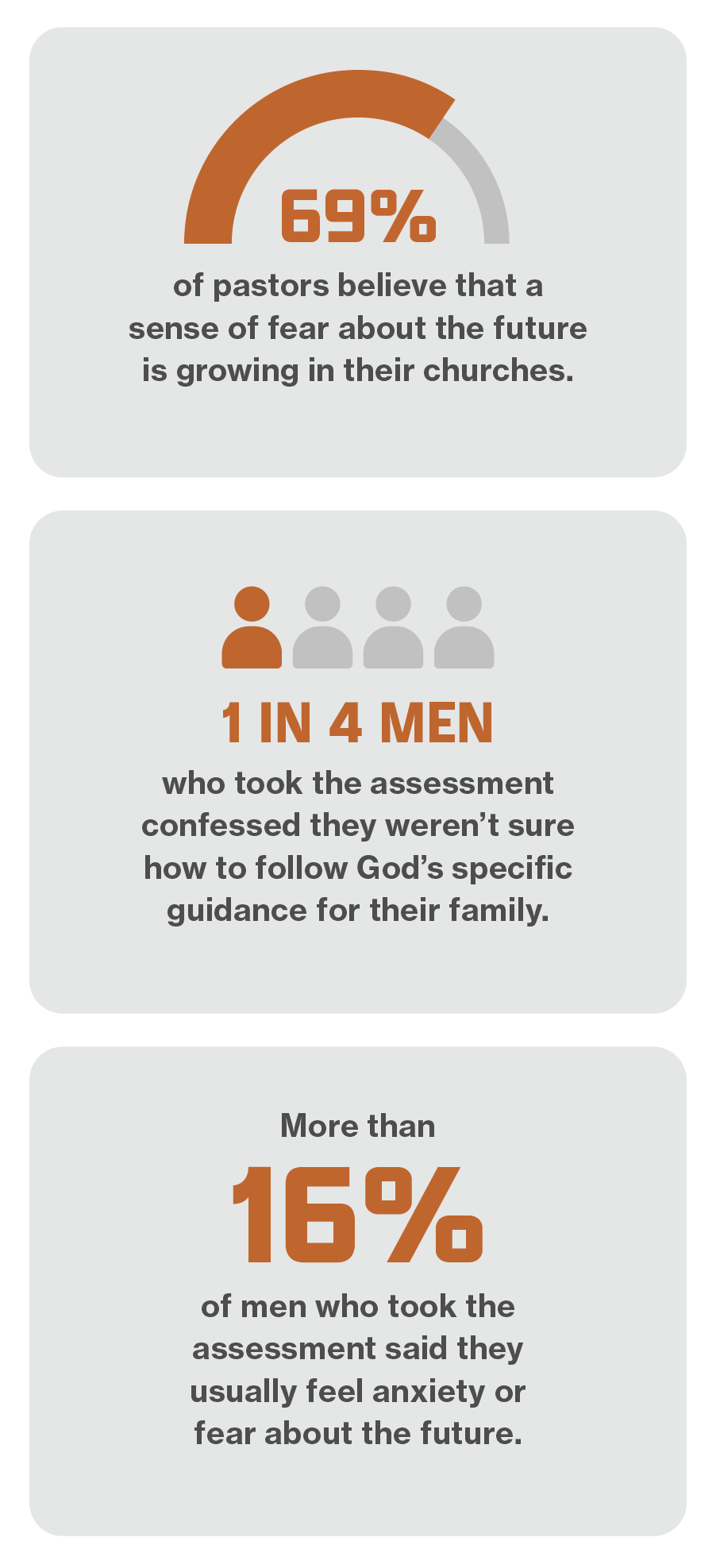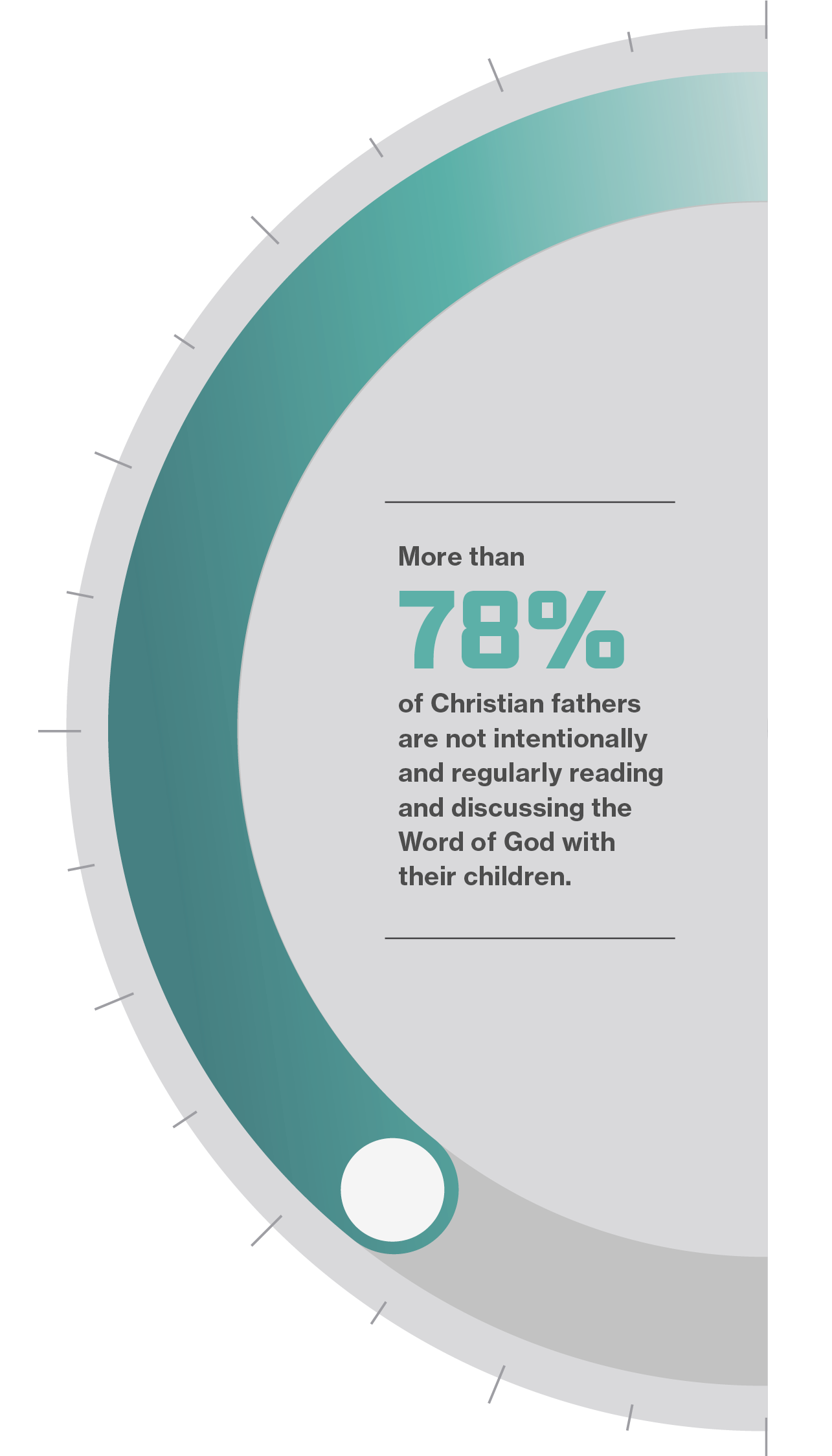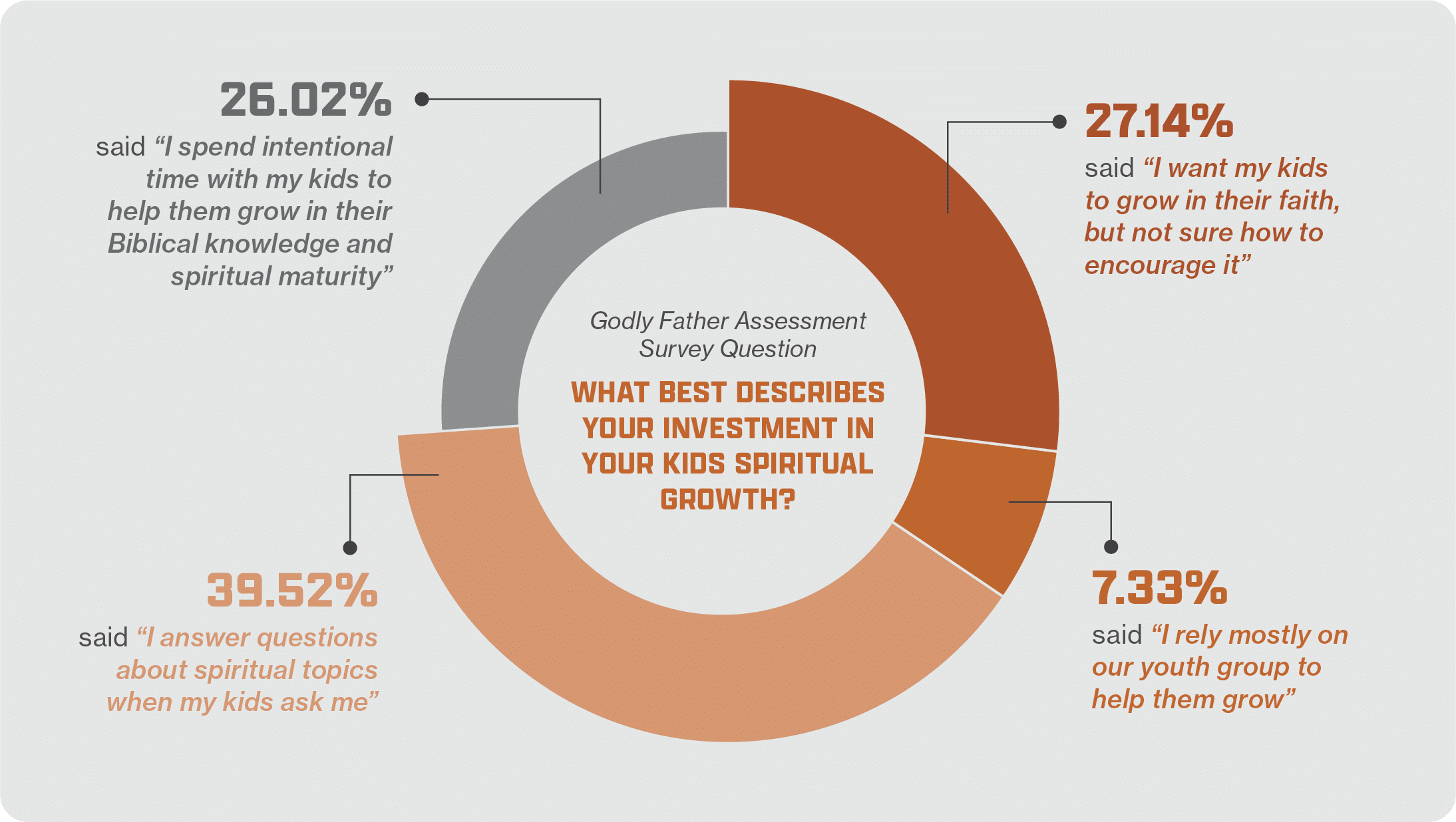There is a growing crisis in biblical fatherhood, and it’s one we can no longer afford to ignore. Today’s Christian fathers are stretched thin, spiritually undernourished, and often unsure of their role as spiritual leaders in the home.
According to data collected from more than 6,000 fathers by Manhood Journey’s Godly Father Assessment, 83% of Christian dads do not pray regularly with their families, and 78% are not consistently reading or discussing the Bible with their children. These numbers paint a sobering picture: many fathers in our churches are not spiritually leading their families.
Manhood Journey, a ministry dedicated to equipping dads to be disciple-makers, released its comprehensive 2025 State of Biblical Fatherhood report to spotlight this exact issue. If the church is serious about strengthening families and discipling the next generation, it must first address the spiritual health of its fathers.
Defining Biblical Fatherhood
Before we examine the data, we must clarify what we mean by “biblical fatherhood.” Too often, we applaud engagement: the dad who coaches little league, shows up to school events, or provides financial support. These things are good, but they are not the full picture. An engaged father is not necessarily a biblically faithful one.
A biblically faithful father is a man who actively proclaims and models the gospel to his children. He prioritizes their spiritual formation above their academic, athletic, or social success. He is a man who walks closely with God, lives out his faith with consistency, and seeks to disciple his children toward Christ. As the report says, “Faithful fathers must be engaged, but engaged fathers aren’t always faithful.”
The Data Snapshot: What Christian Fathers Are Saying
The Godly Father Assessment identified seven key traits of biblically faithful fathers. Here’s a sample of what the survey revealed:
Trusting God
One in four Christian fathers admitted they aren’t sure how to follow God’s specific direction for their family. Over 16% regularly feel anxiety or fear about the future. These fathers are wrestling with doubt, spiritual insecurity, and a lack of clarity about God’s will.

Knowing Scripture
A staggering 42% of dads say they only read the Bible occasionally. Even more concerning, 78% do not regularly read or discuss Scripture with their children. Many Christian fathers lack not just biblical literacy, but also a practical method to pass the Word of God to the next generation.

Praying Fervently
Prayer is nearly absent in many Christian homes. Less than 17% of fathers say their families regularly pray together. Most dads pray only in moments of crisis or need. Distractions, guilt, and busyness were cited as the top reasons for a weak prayer life.
Building Relationships
Christian fathers are also battling isolation. Nearly 80% say they don’t have anyone in their life with whom they can be truly transparent. Only 13% have close friends who intentionally challenge them to grow spiritually. This lack of accountability contributes to emotional and spiritual drift.
Serving Others
About 38% of Christian dads do not serve in their local church in any capacity. Many only serve when asked, rather than seeking ways to bless others with their time and talents. Service is often seen as an obligation rather than a reflection of Christlike humility.
Stewarding Resources
One-third of respondents say they rarely or never give financially to their church. When it comes to time, almost half of all fathers describe their pace of life as rushed. Prioritizing spiritual leadership often takes a backseat to work, hobbies, or entertainment.
Making Disciples
Only 26% of Christian fathers are intentionally discipling their children toward spiritual maturity. Less than 15% are mentoring other dads. Most say they feel unqualified or too inexperienced to guide others in faith.

Why This Matters for the Church
The Bible speaks often and clearly about the father’s role in the home. From Deuteronomy 6 to Psalm 78 to Ephesians 6:4, Scripture places spiritual responsibility squarely on the shoulders of parents—especially fathers. Yet despite this biblical mandate, many parents have unwittingly outsourced discipleship to children’s ministries, youth groups, and Sunday school classes. One of the reasons for this is that churches aren’t offering specific training, encouragement, and accountability for fathers.
A Barna study cited in the report showed that while 99% of pastors believe families are primarily responsible for a child’s spiritual formation, only 20% said their church prioritizes equipping parents for that role. There appears to be a significant disconnect between what we believe and how we lead.
Moving from Crisis to Opportunity
The State of Biblical Fatherhood report does more than diagnose the problem. It offers a hopeful path forward for churches:
- Engage Fathers: Start by affirming their value. Replace the once-a-year Father’s Day shoutout with ongoing ministry that highlights their identity and calling.
- Equip Fathers: Provide practical tools like Bible studies, devotionals, small groups, or digital resources that help dads grow spiritually lead their family faithfully.
- Empower Fathers: Commission them as the spiritual leaders of their homes. Celebrate their wins, share their testimonies, and offer them grace as they grow.
This isn’t about creating perfect dads. It’s about raising faithful ones.
A Call to Act
To fathers, recognize this opportunity to make changes that will have lasting and potentially eternal impact on your children. Lead them, serve them, teach them, and love them.
To pastors, church leaders, and ministry volunteers: the time is now. The Church must invest deeply in equipping fathers to lead well. The impact will be generational. When fathers are spiritually healthy, they cultivate homes where faith flourishes. If you’re not sure where to start, check out manhoodjourney.org/churches and let us help you take the first steps.
Fathers are waiting for someone to call them up, walk beside them, and remind them of who they are in Christ. When fathers rise up in faith, families flourish—and so does the Church.












